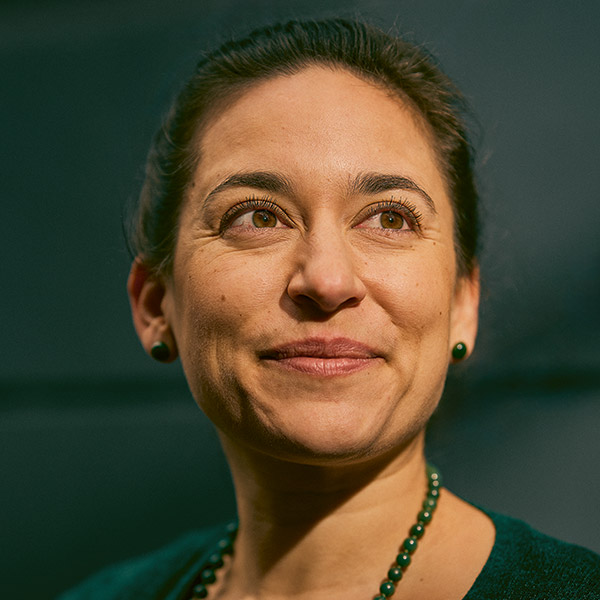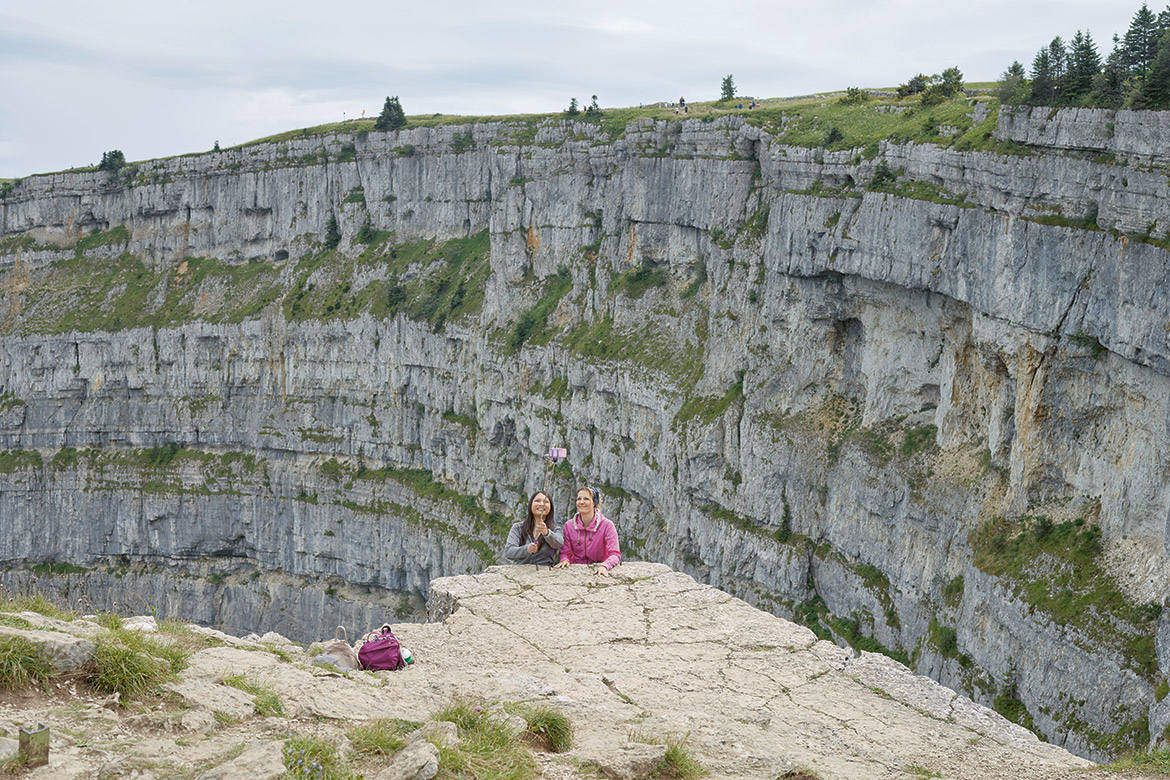The torturers’ confidant
For Jonathan Austin, a specialist on political violence in the Middle East, torturers are ordinary people who get caught up in a spiral. He is now seeking to develop tools to stop the practice of torture.

After several of his friends died in the Syrian uprising, the political scientist Jonathan Austin was determined to understand what happened there. So he began to investigate political violence. | Image: Valérie Chételat
With a few strokes of his pencil, Jonathan Austin sketches the essence of his work at the Graduate Institute in Geneva on a bog-standard notebook. On a fresh page, he places a vertical arrow and then, halfway up, a thick horizontal line, representing a transition. His area of expertise is the individual dynamics of political violence. In particular, he is interested in the process that leads an ordinary person to climb different levels to the threshold of that transition, and from there to use torture on others.
Austin, who is originally from England, didn’t set out with this in mind. Before becoming a political sociologist, he first trained in Arabic after having attended school in various European countries. He was attracted by the Middle East and stayed there between 2007 and 2011, working as a freelance photographer. He eventually fell in love with the region: “I’ve lived in several countries: Syria, Lebanon, Palestine. Despite the dictatorial regime, until the beginning of the revolution, Syria was a very pleasant, welcoming place, with an extraordinary history, varied food, where different cultures lived together and where it was easy to make friends. A real paradise”, he recalls. But in a very short time everything collapsed and became a nightmare. “Some of my friends died in the uprising. It was important for me to understand what happened”, he says. So it’s almost natural that, on his return, he turned his studies towards the theme of violence in this part of the world.
Violence trivialised
His recent doctoral research focuses on torture by government forces – police, conscripts and the military. A form of violence that is generally prohibited by law but still widely practised. Austin is once again travelling to the Middle East, to interrogate torturers in refugee camps and to understand the mechanisms by which they come to commit these acts. He has no difficulty in obtaining information: in these countries, violence is trivialised and talking about it is not taboo. He also realises that these people capable of violence are ultimately ordinary people. “They are not professionals in the field of torture. People are not monsters. In the vast majority of cases, they do not deliberately seek to do harm”.
He sees them, in fact, as being caught up in ‘scripts’. When violence is a daily occurrence, when you punish your children by hitting them on the soles of their feet – a common form of corporal punishment in the Middle East known as falaqa – it is not so difficult to repeat the same gesture on a suspect during an interrogation. “In the United States, on the other hand, torture takes the form of sporting rituals, such as football games in which one person bumps into the other. Here, too, the torturer reproduces something familiar and the playful aspect clears it”, he says. The group effect also plays an important role: it is easier to attack someone as part of a group than to do so alone. In some cases, drugs and alcohol also contribute to forgetting the reality of the gestures. And this is how the line between innocence and violence is easily crossed.
Austin has experienced this gradual acceptance of violence himself. “When I was interviewing torturers, we talked about torture in technical terms, we watched videos together while eating, without emotion, without reaction. I had no problem falling asleep at night, torture had become routine. It took me more than a year to realise that I was actually starting to go through the process myself!”. In hindsight, he recalls having started smoking much more. It was a way, no doubt, to get rid of a present discomfort. “Torturers smoke a lot”, he says.
Since then, Austin has learnt to find ways to step back from his research topic. He works on torture from time to time but takes regular breaks. His other favourite themes, such as Arabic literature, offer him a welcome escape. He particularly appreciates Arabic poetry for its aesthetics.
The potential of black boxes
Still, political violence remains Austin’s main area of research. Since 2017 he has been head of the Violence Prevention Initiative at the Centre on Conflict, Development and Peacebuilding, an interdisciplinary research centre of the Graduate Institute in Geneva. In this framework, he is trying to propose tools to curb violence. According to his research, improving the physical environment could contribute to this by disrupting bad ‘scripts’ – in the same way that better road design helps to promote the flow of traffic. “When there is not enough food, when there is no electricity, when torturers sleep in the same room as prisoners, stress levels increase and with them the risk of things getting out of hand”, he says. In particular, he believes in the potential of surveillance equipment such as ‘black boxes’. He says that knowing we are being monitored makes us, in a way, face our actions.
Based in Geneva, Austin says he appreciates Swiss punctuality and calm. With the prospect of Brexit, he has obtained an Irish passport, so as not to close any doors for the rest of his career. “But I would like to stay in Switzerland”, he adds. He is still very much attached to the Middle East too. In his office, the artefacts and carpets bear witness to this. Moreover, he claims to be optimistic about the region. “Even though the situation there is currently terrible, I see it as an expression of a desire for change. I have a lot of hope for the people there”.
Jonathan Austin was born in England in 1987. He completed his schooling across Europe, namely in Spain, France and Italy, depending on where his father’s career in aerospace engineering took them. Between 2007 and 2011 he spent time in the Middle East, notably in Syria, Lebanon and Palestine, while preparing his Bachelor’s degree in Arabic language at the University of St Andrews (Scotland). He came to Switzerland in 2011 for a Master’s degree programme in political science at the Graduate Institute in Geneva, where he is now enrolled on a PhD programme on political violence. Since 2017 he has been leading the Violence Prevention (VIPRE) Initiative, which seeks to find new ways to curb political violence.




